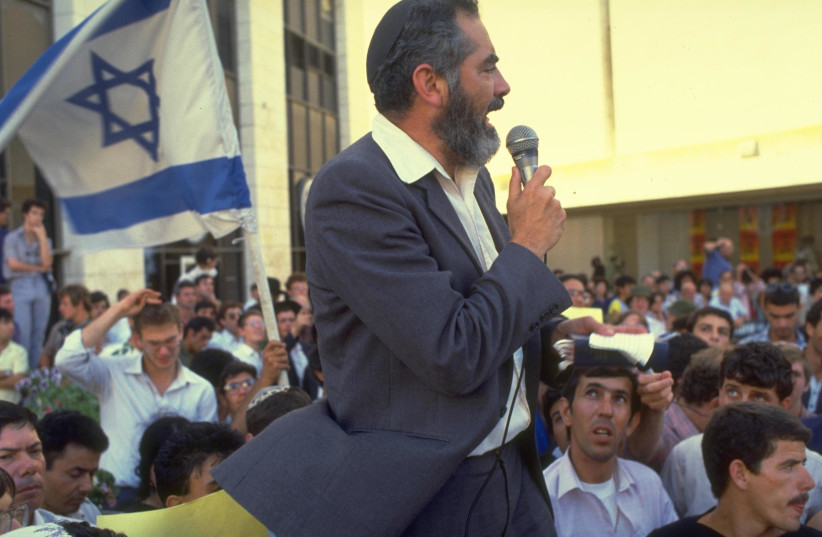Judicial reform can make it easier for Israel to ban political parties – opinion
The legislature has passed the Law to Cancel the Reasonableness Standard which undoes the Supreme Court’s ability to overturn government decisions on the basis of reasonableness. What does this mean for bans on political parties?
In Israel, party bans are subject to the reasonableness clause; candidate bans are not. The decision to overturn the reasonableness clause has already been appealed at the Supreme Court, which will debate the issue in September. If it remains in place, there will be major implications for party bans in Israel.
In 1985, amendments were made to the Basic Law: The Knesset to add conditions under which parties may be banned. These were: any party that negates the democratic character of Israel; any party that negates the existence of Israel as the state of the Jewish people; and any party which incites racism. In 2002, another condition was added – any party that supports armed struggle against Israel by enemies of the state or by terrorist organizations may be banned.
The Central Elections Committee deals with party disqualification. The CEC is constituted to reflect the membership of the current Knesset, in that each sitting party has members (either MKs or other representatives selected by the party) allocated to the CEC, in proportion to the party’s seats in the Knesset. The committee is therefore a microcosm of the Knesset with a neutral party presiding over instances where no agreement may be reached. As the members of the CEC are acting as representatives of their parties in the Knesset, their decisions will be commensurate with those of their party. Two-thirds of the CEC must vote in favor of banning a party. The ban decision then goes to the Court to either support or overturn.
Israel’s history of banning political parties, politicians
In Israel’s long history of party and candidate bans, only three parties have been banned from running in elections. The Socialist List, in 1965 (banned outright); Kach in 1988 and then again in 1992, and Kahane Chai – an offshoot of Kach – in 1992. Both Kach and Kahane Chai were banned outright in 1994.
 Rabbi Meir Kahane, leader of the ”Kach” movement, speaking against terrorist attacks in Jerusalem, May 8, 1984 (credit: NATI HARNIK/GPO)
Rabbi Meir Kahane, leader of the ”Kach” movement, speaking against terrorist attacks in Jerusalem, May 8, 1984 (credit: NATI HARNIK/GPO)There have been significantly more failed party ban attempts – including the Progressive List for Peace in 1984 and 1988, Balad in 2002 and 2009, Ra’am-Ta’al in 2009, and Balad-Ra’am in 2019.
These bans were all initiated by the Central Elections Committee only to be overturned by the Supreme Court. Of the eight failed ban attempts since the 1980s, six targeted Arab parties. Party ban attempts are rare and slowed significantly in favor of attempted candidate bans.
For comparison, since 2002 there have only been four attempts to ban a political party in Israel. From 2002, when candidate bans were first added to the amendment in the Basic Laws, to 2021, there have been 11 attempts to ban a candidate from running in elections. Of those, seven targeted candidates from Arab or Left-wing parties. Each ban decision was subsequently overturned by the Supreme Court.
Indeed, debates in the CEC over bans were often characterized by a sense of futility that the legislature’s decision would be overturned by the Court.
The overturn of the reasonableness clause has been appealed and will come before the Court in September, if the repeal of the reasonableness clause remains in place, the major hurdle to banning parties will be removed.
In recent years, party and candidate ban discussions have mostly been political theater – a way to score points against opposition candidates and parties – because the CEC knew the Court would overturn most of their ban decisions. With the overturn of the reasonableness clause, this is no longer so. Now it may have real impact in limiting who may run for election in Israel.
Party bans had slowed in comparison to candidate bans because it seemed a higher threshold to clear. A return to targeting parties over individual candidates will have broader implications for the character of Israeli democracy.
The conditions for banning parties as outlined in the amendments to the Basic Laws rely on broad interpretation as to what constitutes threat to Israel as a Jewish and democratic state. The interpretation in the legislature is contingent on which parties are in the coalition and which in the opposition. The Supreme Court has been able to use the reasonableness clause to challenge arguments that a particular party or candidate represents a threat to Israel’s democratic or Jewish character and/or to its security – now the sole definition of these conditions will lie with the government.
If the pattern of past failed ban attempts tells us anything, it is that Arab and Left-wing parties will be first in the firing line.
Party bans are justified as a tool to protect democracy from internal threats. They are meant to protect the tolerant from the intolerant, as Karl Popper would have it. However, in doing so, they restrict political participation and expression. They limit participation in democracy to those who accept its values and institutions. If used cravenly – to target parties that challenge the government – a return to party bans will have dire implications for Israel’s democracy.
The writer holds a PhD in Politics from Brandeis University. Her research focuses on militant democracy and party bans in Israel.





Comments are closed.